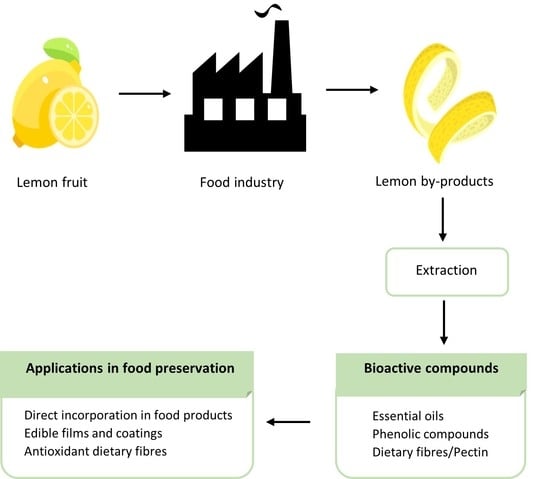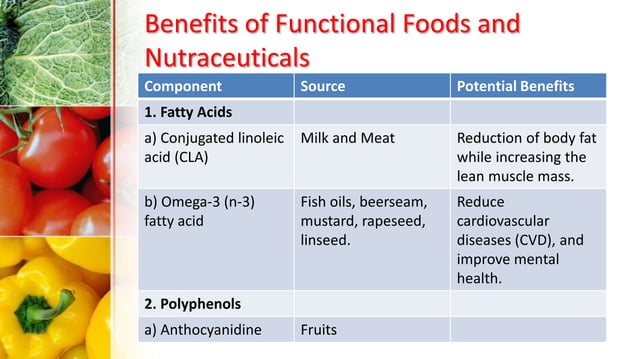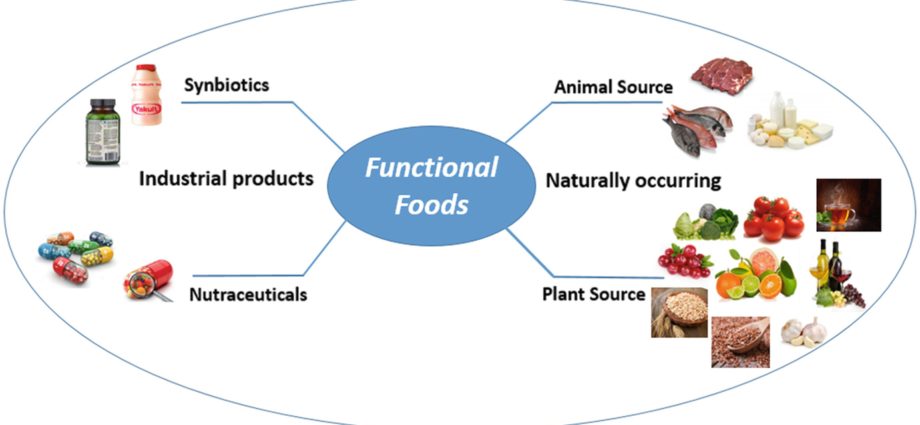Functional Ingredients Are Responsible For Producing The Desired Effect

Imagine strolling through a bustling farmers market, the air thick with the scent of ripe berries, freshly baked bread, and exotic spices. Each vibrant ingredient, from the plump blueberries bursting with antioxidants to the earthy turmeric promising anti-inflammatory benefits, holds a specific purpose, a functional role beyond mere taste and texture. They are the key players in the symphony of health and wellness, quietly working to nourish our bodies from the inside out.
At the heart of the burgeoning health and wellness movement lies a growing understanding and appreciation for functional ingredients. These components, added to foods, beverages, and supplements, are responsible for producing specific, desired effects that extend beyond basic nutrition.
The Rise of Functional Foods
The concept of functional foods isn’t new. For centuries, cultures around the world have instinctively incorporated ingredients known for their health-promoting properties into their diets.
Think of traditional Chinese medicine, with its emphasis on herbs and roots, or the Mediterranean diet, rich in olive oil, fruits, and vegetables celebrated for their heart-healthy benefits. However, the modern understanding and targeted application of functional ingredients are rapidly evolving, driven by scientific research and consumer demand.
This has given rise to a new era of food innovation, with manufacturers actively seeking ways to enhance the nutritional profile and therapeutic potential of everyday products.
Defining Functionality: What Makes an Ingredient 'Functional'?
The definition of a functional ingredient is broad, but it generally encompasses any substance that provides a health benefit beyond basic nutrition when consumed as part of a varied diet.
These benefits can range from improving cardiovascular health and boosting immunity to enhancing cognitive function and supporting gut health. Probiotics, for example, are live microorganisms that contribute to a healthy gut microbiome, aiding digestion and strengthening the immune system.
Omega-3 fatty acids, commonly found in fish oil and flaxseed, are known for their anti-inflammatory properties and their positive impact on heart and brain health. Other notable examples include prebiotics, dietary fiber, antioxidants, and certain vitamins and minerals.
The Science Behind the Benefits
The effectiveness of functional ingredients is often backed by scientific research, including clinical trials and epidemiological studies.
For instance, numerous studies have demonstrated the benefits of consuming foods rich in soluble fiber, such as oats and beans, for lowering cholesterol levels. Similarly, research has shown that curcumin, the active compound in turmeric, possesses potent anti-inflammatory and antioxidant properties, potentially offering protection against various chronic diseases.
However, it's important to note that the scientific landscape is constantly evolving. More research is often needed to fully understand the mechanisms of action and the optimal dosages for specific functional ingredients.
A World of Applications
Functional ingredients are finding their way into a wide array of products, transforming the food and beverage landscape.
You can now find yogurts fortified with probiotics, cereals enriched with fiber, and juices packed with antioxidants. Even snacks and convenience foods are getting a functional makeover, with manufacturers adding ingredients like chia seeds, quinoa, and spirulina to boost their nutritional value.
Beyond food and beverages, functional ingredients are also prevalent in dietary supplements, offering targeted support for specific health needs. The global market for functional foods and beverages is experiencing significant growth, driven by increasing consumer awareness of the link between diet and health.
Navigating the Market: Choosing Wisely
With so many products claiming to contain functional ingredients, it's crucial to be an informed consumer. Reading labels carefully is essential, paying attention to the types and amounts of functional ingredients listed.
Look for products that have been tested and certified by reputable third-party organizations. Be wary of products that make exaggerated or unsubstantiated health claims.
Consult with a healthcare professional or registered dietitian to determine which functional ingredients are most appropriate for your individual needs and health goals.
The Future of Functional Ingredients
The future of functional ingredients is bright, with ongoing research uncovering new potential health benefits and applications.
Personalized nutrition, tailoring dietary recommendations to an individual's unique genetic makeup and lifestyle factors, is a growing trend. This will likely lead to more targeted use of functional ingredients to address specific health needs.
Furthermore, advancements in food technology are enabling the development of innovative delivery systems for functional ingredients, ensuring optimal absorption and bioavailability. As consumers become increasingly proactive about their health, the demand for foods and beverages enhanced with functional ingredients is expected to continue to rise.
The food industry is constantly evolving. According to Mintel, a global market intelligence agency, the development in functional ingredients will be focus on food that will address mental wellbeing.
The future direction is on the effect that the food will provide to the consumers. More than just physical effect, mental and emotional wellbeing is the next thing that will be explore with the food and beverages in the industry.
A Holistic Approach
While functional ingredients can play a valuable role in promoting health and well-being, it's important to remember that they are just one piece of the puzzle.
A healthy diet, regular exercise, sufficient sleep, and stress management are all essential for optimal health. Functional ingredients should be viewed as complementary tools to support a holistic approach to wellness.
By incorporating these beneficial components into our diets, alongside other healthy habits, we can unlock the power of food to nourish our bodies, enhance our lives, and thrive.
The key is balance. It's not about relying solely on functional ingredients but integrating them into a well-rounded lifestyle.
As we continue to learn more about the intricate relationship between food and health, functional ingredients will undoubtedly play an increasingly important role in shaping the future of nutrition.
In a world increasingly focused on preventive healthcare, the ability to harness the power of food to support our well-being is an exciting and promising prospect. Functional ingredients, with their targeted health benefits, are paving the way for a healthier and more vibrant future.


















